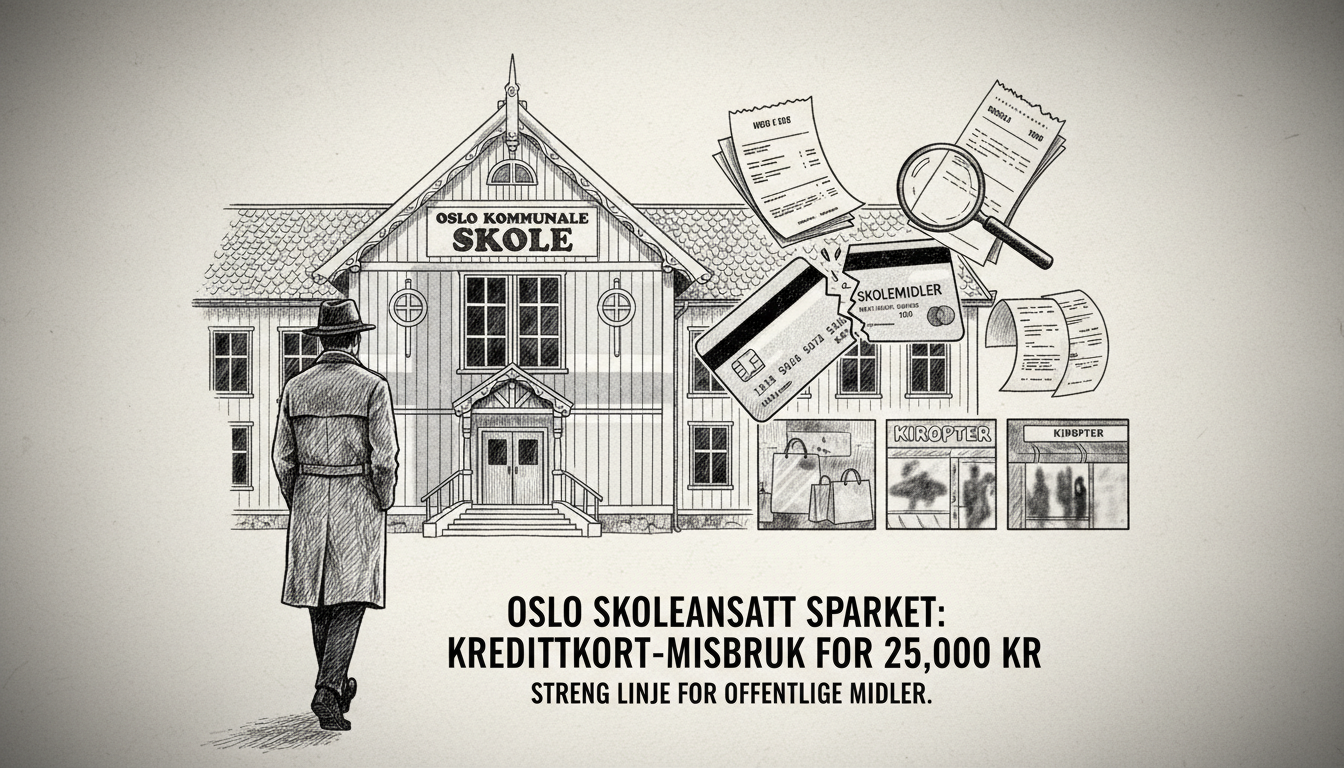An employee at an Oslo school has been terminated after repeatedly using the school's credit card for personal purchases. The staff member used the institution's Kiwi grocery store card 18 times over two months. They bought personal goods totaling 25,000 Norwegian kroner.
The case emerged in documents from the Education Agency to the City Council's education department and the Municipal Audit Office. School administrators discovered the misconduct when they received an invoice from the retail group that operates Kiwi stores. The bill contained multiple purchases that seemed unusual for school supplies. Several transactions occurred at stores located far from the school's vicinity.
School officials immediately reported the incident to police authorities. Law enforcement officers obtained surveillance footage from one of the grocery stores involved. The video evidence clearly showed the school employee making the unauthorized purchases. When confronted with the evidence, the staff member admitted to all factual circumstances of the case.
Beyond losing their position, the employee will receive an official penalty notice. They have also agreed to repay the full amount through deductions from their final settlement payment. This case highlights the importance of financial oversight in Norwegian public institutions.
Norway maintains strict accountability standards for public funds, particularly in education. The country's municipal audit systems are designed to catch irregularities quickly. This incident represents a breach of trust that Norwegian society takes seriously. Public employees handling institutional funds face rigorous scrutiny.
Similar cases of municipal fund misuse occasionally surface across Nordic countries. Last year, a Copenhagen daycare worker faced dismissal for similar credit card misuse. In Sweden, several municipal employees have been prosecuted for misusing public procurement cards. These incidents typically result in immediate termination and legal consequences.
The Oslo case demonstrates how Norway's transparent systems help detect financial irregularities. The combination of detailed invoicing, geographic pattern analysis, and surveillance cooperation between businesses and authorities creates effective oversight. Such systems protect public resources while maintaining trust in Norway's widely respected education system.
International readers might find Norway's response notably swift and decisive. The country maintains low tolerance for misuse of public resources. Norwegian public institutions typically implement strong internal controls, making successful fraud attempts relatively rare. When violations occur, the response is consistently firm and transparent.
This incident serves as a reminder that even nations with strong anti-corruption records must maintain vigilance. No system is completely immune to individual misconduct. The case also shows how cooperation between schools, retailers, and law enforcement can effectively address financial misconduct.

